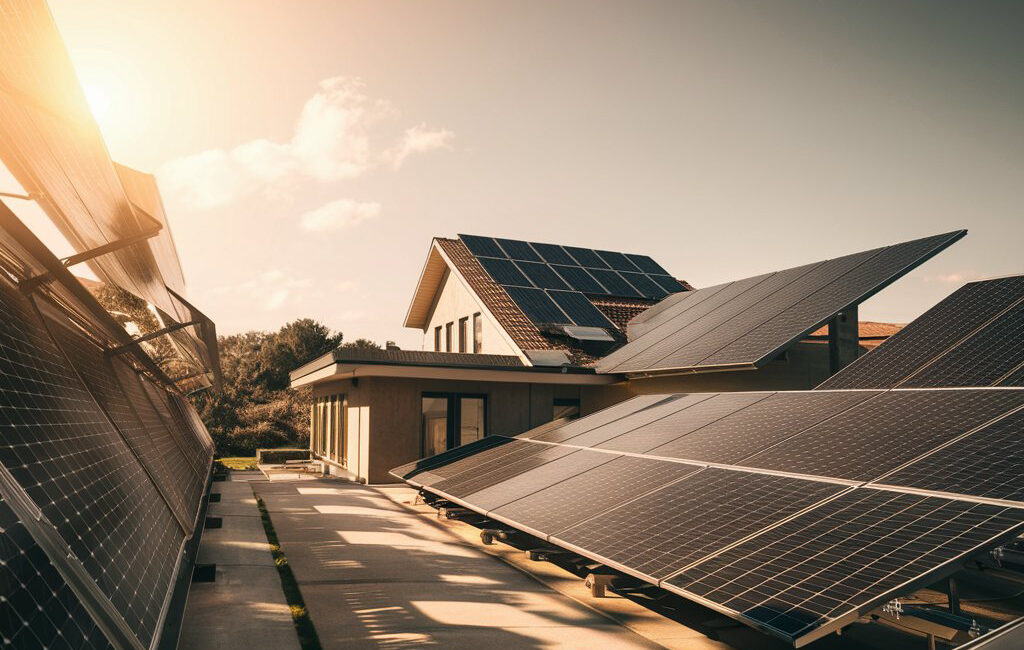Off-grid solar systems are designed to operate independently of the electrical grid. They harness sunlight to generate electricity, which is then stored in batteries for use during cloudy days or at night. This makes them ideal for remote areas or situations where grid power is unreliable or unavailable.
Viability
Grid
Power Outages
Cost
How does it Work?
- Solar Panels Generate Electricity: Solar panels on your property generate electricity from sunlight, just like with on-grid systems.
- Batteries Store Excess Electricity: Excess electricity generated during the day is stored in batteries for use during the night or when the panels can’t produce power.
- No Connection to the Grid: An off-grid system doesn’t connect to the local utility grid. You rely solely on the solar panels and battery storage for your electricity needs.

Advantages of Off Grid Solar System
Off-grid solar systems have gained significant popularity in recent years due to their numerous benefits. These systems offer a sustainable and reliable solution for those seeking energy independence and reduced reliance on the grid. In this section, we will delve into the key advantages of off-grid solar systems, exploring how they can benefit both individuals and the environment.
- Less reliant on the grid, reduces vulnerability to power outages and fluctuations in energy prices.
- Generating your own electricity can significantly outweigh the initial investment in an off-grid solar system.
- Reducing carbon footprint and contributing to a healthier planet.
- providing backup power during grid outages, ensuring essential services remain operational.
- Ideal for areas not connected to the grid, such as rural or remote properties.
- Enhancing the value of your property.
While off-grid solar systems offer numerous advantages, it’s important to consider factors such as initial costs, maintenance requirements, and the amount of sunlight available in your location to determine if it’s the right choice for you.

